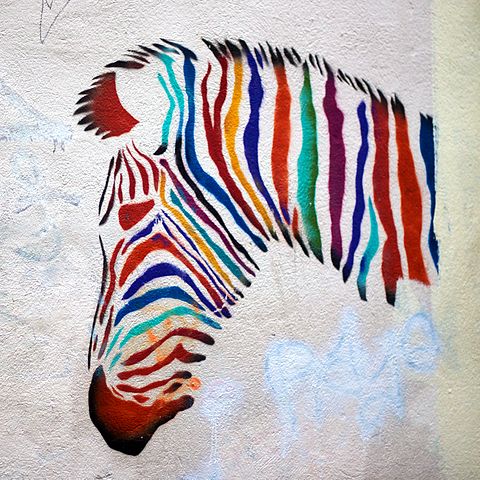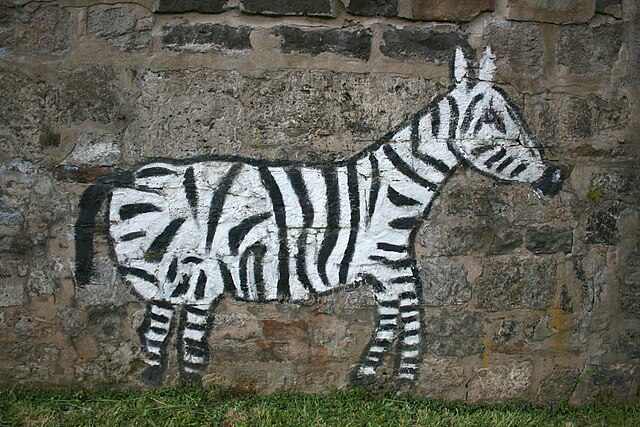In November 2014, the Thai government passed Thailand’s first-ever animal protection law.

So a timely new acquisition to the Thammasat Universities Libraries collection is Noble Cows and Hybrid Zebras: Essays on Animals and History by Harriet Ritvo:
The TU Libraries also own a previous book by the same author, The Animal Estate: the English and other Creatures in the Victorian Age. Ritvo, a professor of history at MIT, is an expert in animal studies. She explores how animals and people interact, and how the way we behave with animals is part of what makes us human. Whether we hunt animals or farm with them, see them in zoos or keep them as pets, they influence our lives. How people affect animal populations is also a good indication of our overall impact on the environment. Noble Cows and Hybrid Zebras studies different attitudes about animals. Sometimes they are treated with negligence while other times they are romanticized and described almost as if they were humans. Ritvo points out that there is nothing new about animal protection movements. Even in Victorian England in the 1800s, there were already vocal defenders of animal rights.

The Thai perspective.
The Kingdom has some charities working to preserve and protect wildlife, such as the Wildlife Friends of Thailand, Wildlife Conservation Society – Thailand Program, and the Wild Animals Rescue Foundation of Thailand.
Yet the Kingdom has been slower to accept the need for also protecting more humble domestic animals, some of which we see every day. Only now with the new law is it possible to prosecute someone for animal cruelty. The legislation is meant to shield domestic pets and animals used in the food industry. Also animals used at the workplace are protected, in principle. If animal owners are negligent, they may be liable to a fine of up to 40,000 baht or a prison sentence of as long as two years. A spokesman from the Soi Dog Foundation stated that the law is a good first step, but could be clearer. The Soi Dog Foundation aims to “improve the welfare of dogs and cats in Thailand, resulting in better lives for both the animal and human communities, to end animal cruelty, and to ultimately create a society without homeless animals.”

Tirapongse Pangsrivongse, president of the Thai Society for the Prevention of Cruelty to Animals, called the law a “victory for rights groups,” but asked for further definitions of what is legally considered animal cruelty. He implied that there were too many loopholes, allowing bad behavior to go unpunished: “Unfortunately the creativity of unscrupulous people knows no bounds.”
Sometimes called the “angel of animal charity,” the actress, emcee, and top model Chollada “Kae” Mekratri leads another animal rights group, calling for more details in the protection law to make it more effective. Kae argues that animals should be treated like members of the family since they are alive and have feelings. Among other groups devoting time and energy to this matter is the Pet Animal Welfare Society: PAWS of Bangkok.
Society’s reflection on itself.
Like these groups, Noble Cows and Hybrid Zebras reminds us that how a society treats animals can be a reflection on itself. When Ritvo began her historical research in the 1980s, animal studies was not a widely-accepted subject for scholarly investigation. One of her colleagues even told her that “many weird things have come out of the humanities lately, but this is the weirdest.” As the years went by, researchers came to understand that if animals are studied in the humanities and social sciences, some intriguing points become clear. Animals are everywhere, but they tend to be overlooked or ignored. They are extremely important, but also are taken for granted. In some ways they are like people, but also unlike us. Ritvo focuses on mammals, because they tend to be the “most closely associated with people in daily experience and in thought and rhetoric.” Ideas that people have about animals can sometimes reflect the ideas they have about fellow human beings. Lately there has been debate over how to define an animal. For example, should human beings be classified among animals? Scientists place Homo sapiens (the scientific name for the human species) in the order of primates alongside monkeys and other apes.

Maybe for that reason, Ritvo points out, even in the 1800s “pets really did belong to human families in all but the narrowest biological sense. At the other end of the affective scale, the relationships between some working animals and their owners strongly resembled the relationships between some human laborers and their employers. The docility and loyal devotion of dogs and horses were praised in terms equally applicable to human servants. Such behavior could also be appreciatively characterized as ‘sagacity’ or even ‘intelligence.’”

(all images courtesy of Wikimedia Commons).
